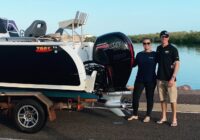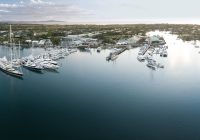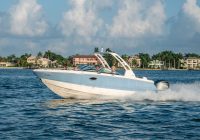A series of fires on recreational vessels around the world have been linked to lithium-ion battery-powered devices, tools, and toys stored on board.
A series of fires on recreational vessels around the world have been linked to lithium-ion battery-powered devices, tools, and toys stored on board. Responding to this emerging safety issue for boat owners, Nautilus Marine Insurance has interviewed a panel of independent experts for an article within the latest issue of Nautilus Marine Magazine to share their technical advice.

Commenting on the initiative Lyndon Turner, CEO of Nautilus Marine Insurance and Publisher of Nautilus Marine Magazine, said that “Nautilus Marine Insurance sees the safety of boat owners as our number one priority. We recognise the desire of boat owners and those in the wider marine industry to learn more about the safety issues surrounding the use of lithium-ion batteries on board vessels. So, we saw it as a responsible initiative to interview a range of experts to share their technical advice around lithium-ion battery safe practices.”
The resulting nine-page article features in the latest issue of Nautilus Marine Magazine, and is readily available to the boating public as a downloadable PDF on the Nautilus Marine Insurance website. Those interviewed within Nautilus Marine Magazine include Dr Adam Best (CSIRO), Matt Ruwald (AllMarine Power Solutions), Michael Lieberman (Marine Surveyor and Loss Adjustor) and Warren Damm (Technical Sales Director at NAVICO).
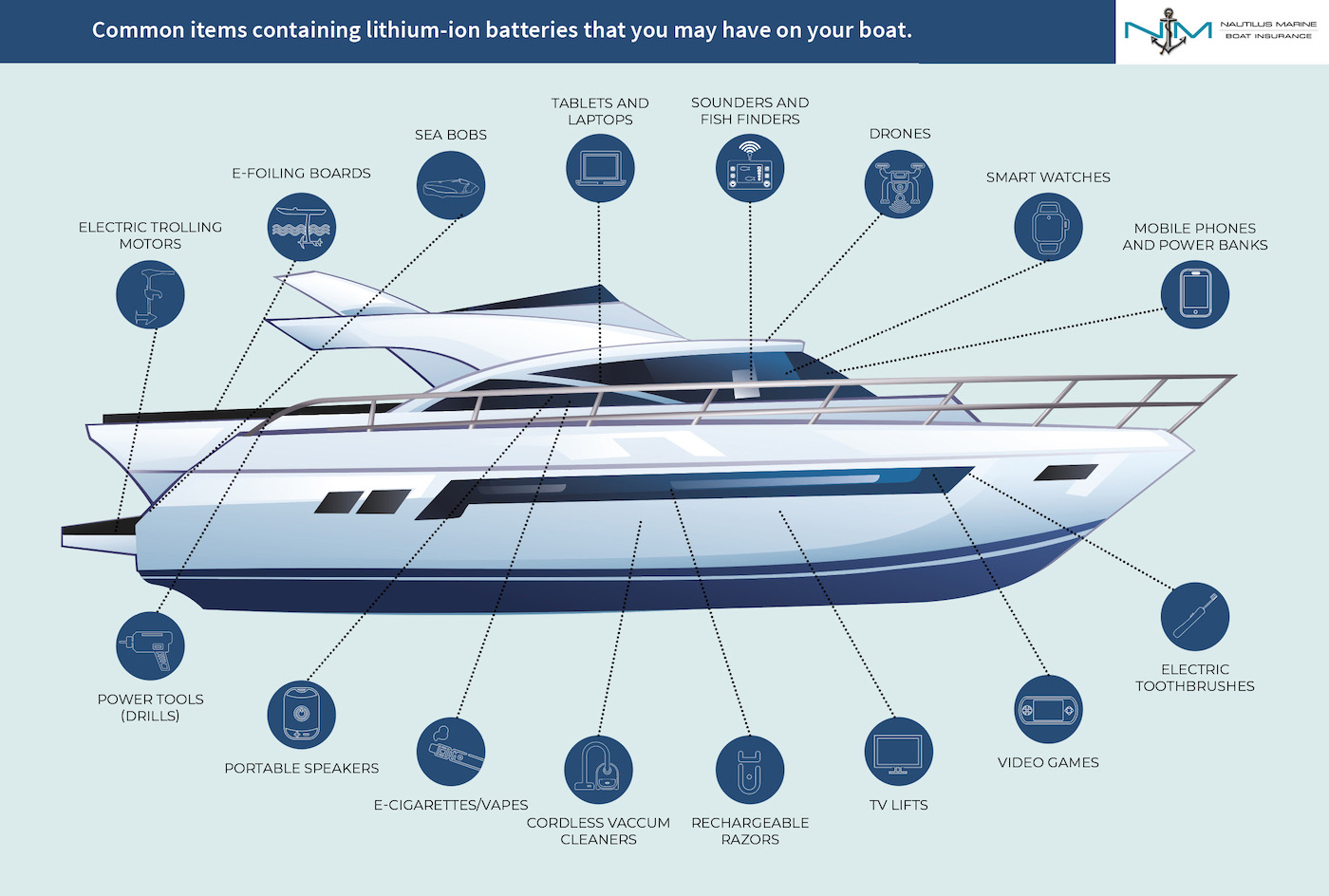
Dr Adam Best, Principal Research Scientist at Australia’s national science agency, CSIRO, is a leading lithium-ion battery expert and the co-author of the CSIRO’s report for the Australian Competition and Consumer Commission (ACCC) titled ‘Lithium-ion Battery Safety’.
Within his interview in Nautilus Marine Magazine Dr Best states that “lithium-ion batteries are statistically a very safe technology” and that fires caused by lithium-ion batteries are also a statistically rare event. However, the issues lie in the scale and intensity of such fires, and the problems associated with putting them out, commenting that “these factors are creating a lot of recent awareness, concern, and in some cases even hysteria, around lithium-ion battery safety.”
Within the article, Dr Best was asked about concerns with the range of lithium-ion powered devices, tools, and toys, which can be commonly found both within a home environment and stored onboard vessels. He affirmed that leaving such items on charge for extended periods of time represents a significant safety risk. “Just charge it before you use it,” stated Dr Best. “Don’t charge it up and then leave it sitting on a charger, because that’s when failures can potentially occur.”
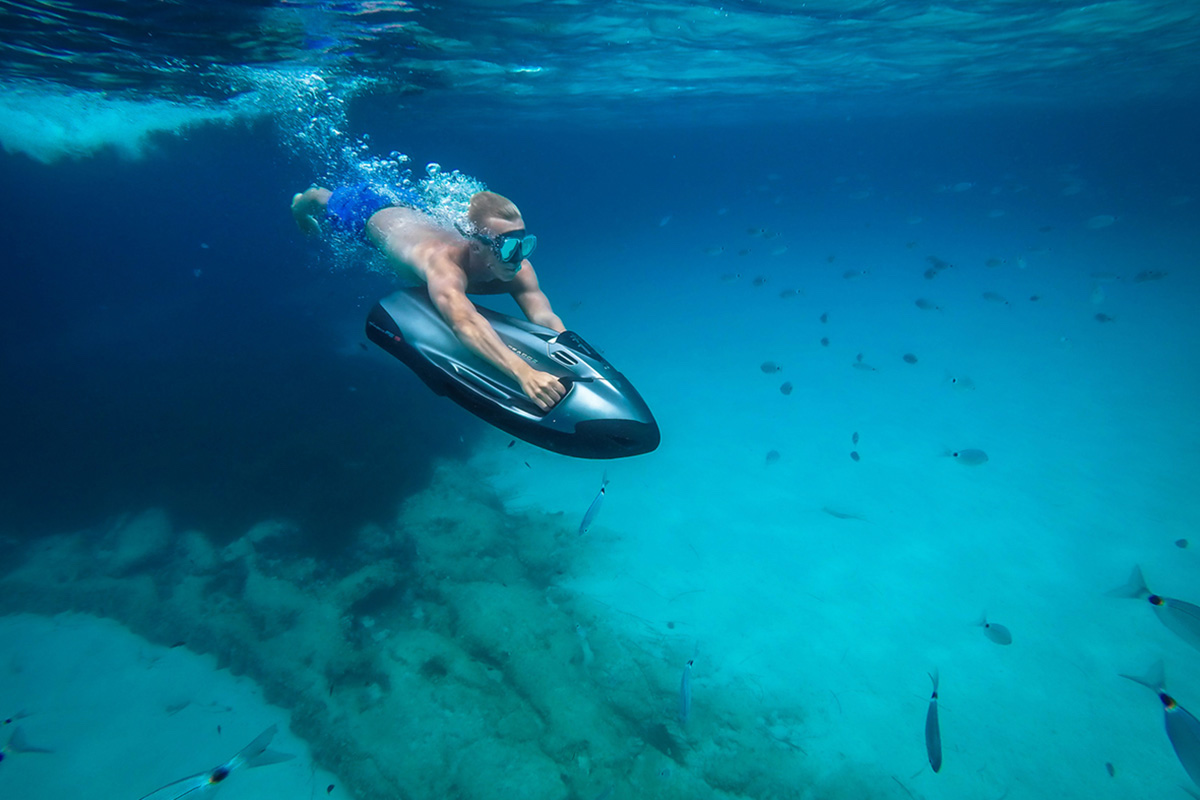
Matt Ruwald is a lithium-ion battery expert and the Director and Owner of AllMarine Power Solutions, an Australian-based company specialising in marine-grade lithium batteries. Ruwald highlighted the safety issues with portable items powered by lithium-ion batteries. “If you have items such as cordless tools, electric surfboards and cordless vacuum cleaners stored on your vessel you should understand that these products generally are fitted with the more volatile blends of lithium-ion batteries. Such equipment can and have caught fire on vessels, resulting in a total loss of the vessel.” Ruwald’s advice, “Never charge the above equipment if the battery is hot from use. Give the battery time to cool down. Never leave the equipment on charge when you are not on the vessel.”
Both Ruwald and a third lithium-ion battery expert interviewed for Nautilus Marine Magazine, Warren Damm, Technical Sales Director at NAVICO, pointed out that there are a range of different types of lithium-ion batteries used in these portable items, with a number of them presenting potential instability.
In terms of safety profile, all experts interviewed for the article made a clear distinction between the high-energy lithium-ion batteries found within portable devices, and the lithium iron phosphate [LFP] batteries that are recommended for the marine industry as a vessel power source. LFP batteries are widely regarded as more stable than other types of lithium-ion batteries with a better safety track record.
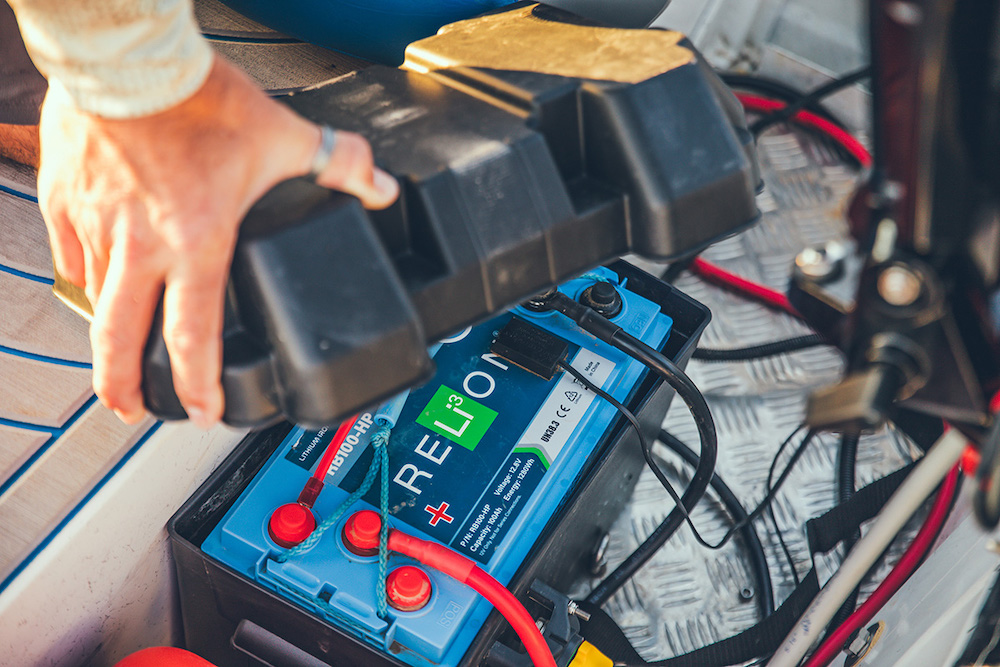
“Lithium iron phosphate [LFP] is the preferred lithium blend for quality marine lithium batteries,” says Ruwald. “It is my opinion that LFP batteries installed correctly and purchased from a reputable supplier and quality recognised brand are the safest batteries you can install on your vessel.” Damm agreed, stating within his interview that LFP batteries represent the “gold standard” in safety as they have less energy density and are less likely to go into “thermal runaway”.
According to the CSIRO’s Dr Best, ‘thermal runaway’ is a term used to describe when “the internal heat inside the cell builds up to such a point where you cannot stop it. There’s no intervention that can stop that battery failure from progressing. That’s why it’s a runaway event.”
The fourth expert interviewed within Nautilus Marine Magazine, Marine Surveyor and Loss Adjustor Michael Lieberman, has seen first-hand the consequences of boat fires caused by lithium-ion batteries.
“The consequences of lithium battery fires onboard vessels can be completely catastrophic and destructive and are an issue every boat owner needs to be aware of,” says Lieberman. “I have now attended eight boat fires linked to lithium batteries and I’m yet to see one where we managed to save the boat. When we are talking about lithium battery boat fires, we are not seeing issues with professionally installed, marine-grade LFP house bank battery systems. All the critical evidence we have links these boat fires to accessories, tools and toys that are either stored or charged onboard. Many of these tools and household devices are not specifically designed for marine use or a boating environment. Lithium-powered tools and toys simply don’t belong in a hot and salty boat environment for extended periods, they are better stored in dry and cool environments onshore. Nobody wants to be one of the unlucky ones who loses their boat to a fire, so not storing or charging these products unattended onboard are simple ways to reduce your risk of that happening.”
So, what can you do if you are faced with a lithium-ion battery fire either at home or onboard your vessel? “Personal fire extinguishers won’t help,” says Dr Best. “Just get as far away as you can outside and call for help. When you ring 000, tell them everything you know so they know what it is that they’re coming to fight.”
The full nine-page article on lithium-ion battery safety, including more information and advice from the independent experts that Nautilus Marine Insurance interviewed, can be found in the latest issue of Nautilus Marine Magazine. It is also available for download at www.nautilusinsurance.com.au/news
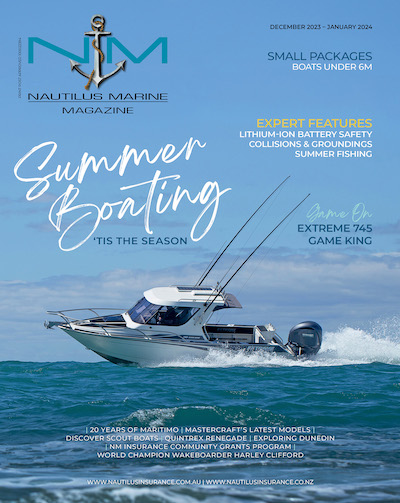
About Nautilus Marine Magazine
Nautilus Marine Magazine offers readers 100 pages of content to support their on-water lifestyle. Published every two months across Australia and New Zealand for an audience of Nautilus Marine Insurance customers, members of the marine industry and general how-to articles, expert features, boat profiles, interviews with boating and sailing identities, fishing adventures, travel destinations, boating lifestyle content and dining.





